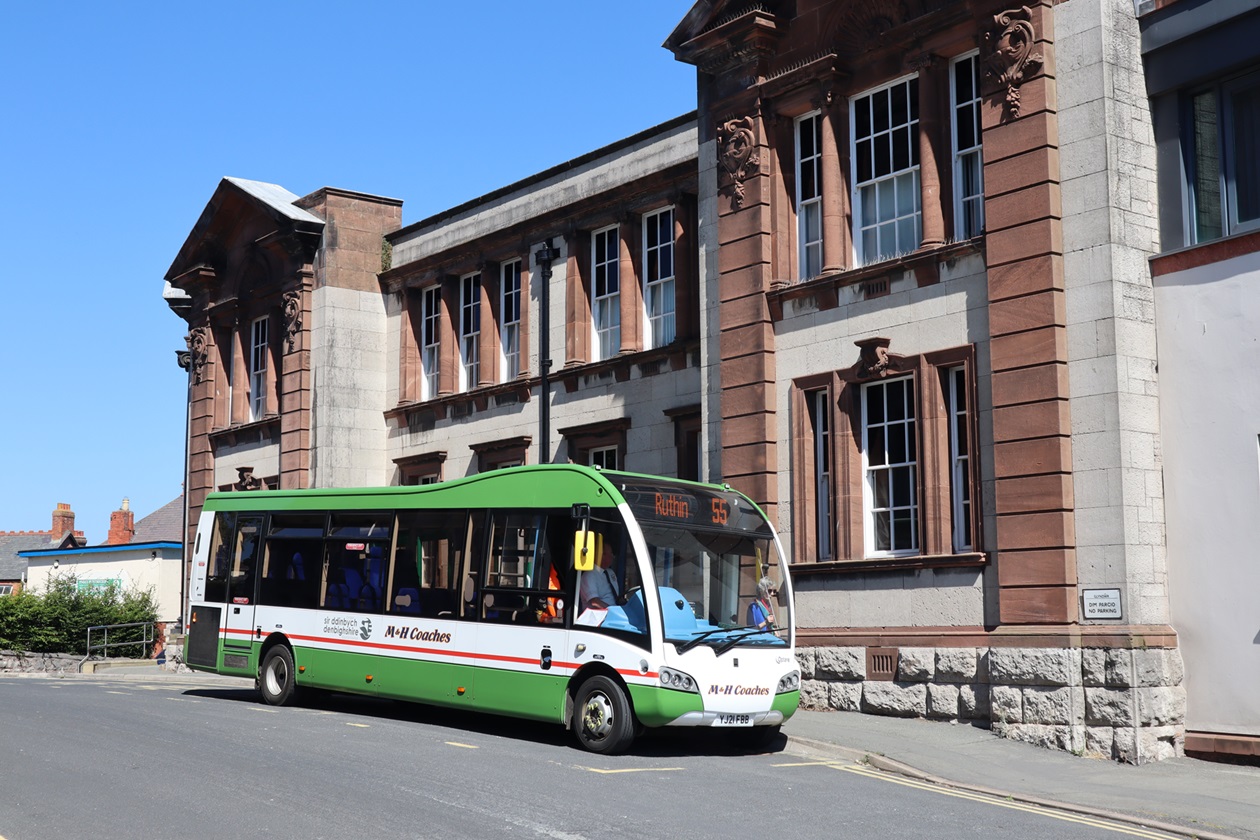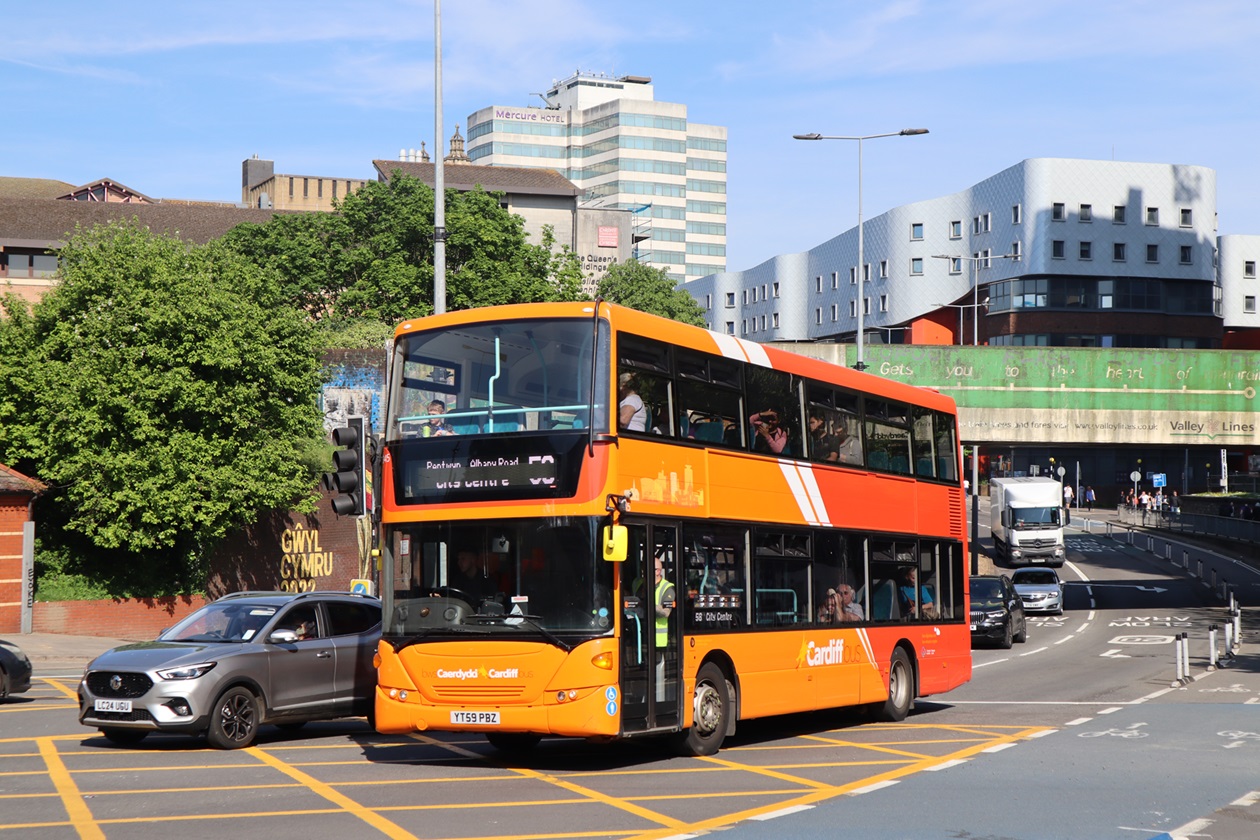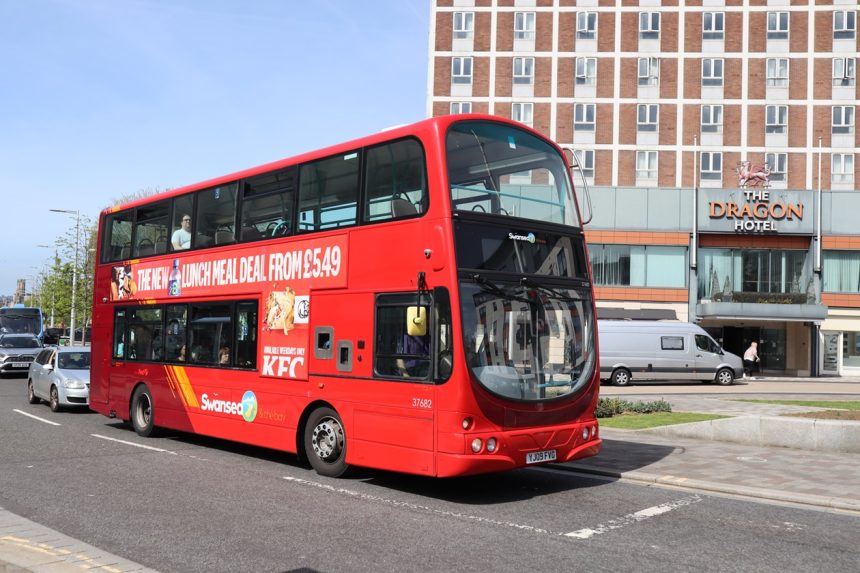The Welsh Government laid the Bus Services (Wales) Bill before the Senedd on 31 March, as promised. If passed, it will give powers to deploy franchising across the country as part of a wider package of reform measures.
Franchising has long been an aim of ministers in Wales, but the Bill will also enable what is termed “direct provision” of bus services. That appears to refer to a hypothetical Welsh Government-owned ‘operator of last resort’. It will also remove the ban on creation of new municipal operators.
Under franchising proposals, bus services would be grouped into packages for tendering. Those will range from lots that could be as small as single routes to area-wide franchises, an explanatory memorandum accompanying the Bill notes.
Transport for Wales (TfW) will divide the country into geographical areas termed “roll-out zones.” While no hierarchy is given in the Bill, the memorandum observes a presumption that franchising “will be the principal mechanism for delivering [bus] services.”
Direct provision would likely be used where procurement via a local bus service franchise contract has not been possible, or where such a contract has ended before its agreed term. Service permits are also in play.
In addition to securing local bus services, the Bill places upon Welsh ministers a duty to determine that provision. Central there is preparation and publication of a Welsh Bus Network Plan. It will set out the essential characteristics of what ministers consider are required to fulfil the duty to secure delivery of services.
View of local authorities will be sought during preparation of the Plan, while consultation of specified persons and bodies, including bus operator representatives, will be undertaken. The Plan will remain under review and be revised when appropriate.

Under bus franchising in Wales, “appropriate contractual models” will be used for different types of services, such as scheduled and demand-responsive provision. It is expected that the phased rollout of franchising will take around four years after the Bill is passed.
A recently updated roadmap to bus service reform in Wales notes how that work will be done within available funding limits, and that “detailed and comprehensive financial modelling” is currently being carried out.
An incentive-based gross cost model via which TfW will pay operators a fixed sum to run services is expected to be adopted. Those parties would be rewarded for providing excellent services, the roadmap states.
“Using this model means that TfW will be responsible for managing passenger fare revenue,” it adds. Those proceeds “can be reinvested into keeping the network running and improving bus services,” although the document notes that TfW will be exposed to revenue risk.
Franchising is expected to commence in South West Wales in 2027. North Wales will follow in 2028, South East Wales in 2029, and Mid Wales in 2030. The latter area is already subject to ‘bridge to bus franchising’ plans to improve services.
Transitional costs of bus franchising across Wales are assessed at £372.6 million over five years, according to the explanatory memorandum, with recurrent administrative costs of £554.6 million over the period between FY2025/26 and FY2054/55, inclusive.
Against those are set savings in what are termed “compliance costs” to give a claimed overall cost of bus franchising in Wales of £623.5 million over 30 years.
Depots will be bought by the Welsh Government at an expected cost of £178 million, but bus purchase is included within annual operational costs for the purpose of financial modelling. TfW plans to allocate £17.5 million for the purchase of fleet and depots in FY2025/26.

Speaking about publication of the Bus Services (Wales) Bill, Cabinet Secretary for Transport and North Wales Ken Skates says that the existing deregulated approach “is ineffective and inefficient and, as a result, it does not always deliver the public transport opportunities that communities need.”
The Confederation of Passenger Transport (CPT) Cymru says that its members welcome the ambition shown, although it has again advocated use of a ‘minimum subsidy’ model that combines central control with commercial incentives for operators.
Under that approach, the Welsh Government would specify a base network and fares and decide on branding and vehicle type to be used. Operators would bid against that but could propose enhancements to build patronage, offer special tickets, or reduce costs through what CPT Cymru says is “innovation and efficiency.”
The trade body has also pointed out that work must be done to speed bus services in Wales and tackle congestion for franchising to succeed. Use of a reform model that is specific to Wales is also key and it must take account of differences between cities, towns, villages and rural areas, says CPT Cymru Director Aaron Hill.
“We urge the [Welsh] Government to opt for a ‘minimum subsidy’ model that combines central control with a focus on customers and commercial incentives to deliver improvements,” he continues.
“Simply changing who is in charge will not guarantee success – passengers will only see better buses if commitments are backed by adequate funding, and by steps to speed up buses by taking them out of traffic congestion.”
Nevertheless, the Confederation adds that its bus operator members in Wales will work closely with the Welsh Government in delivering better bus services in the country.



























